..More Than Just A Town.
So, we covered the actual town a few days ago, in this article. Now it’s time to see what’s around the town. A few of these are so close to the town it’s hard to say what’s “in” and what’s “around.” Let’s start with the close ones…
Driving from the south, the first place I reached – before the town – was the Phra Phothisat Kuan Im Palace. The place was not as large as it’s name…
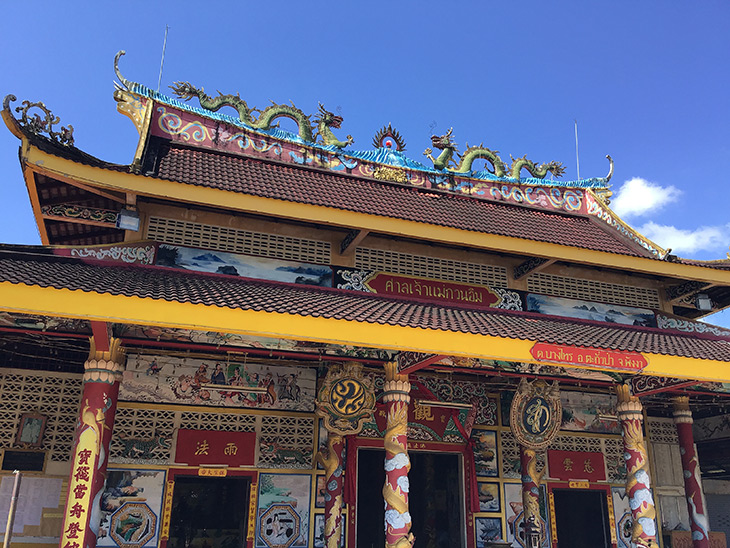
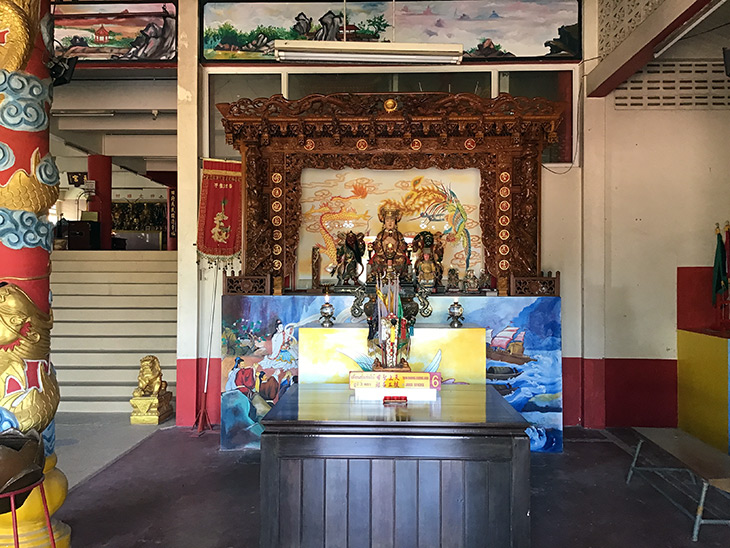
The doors were pretty fancy though…
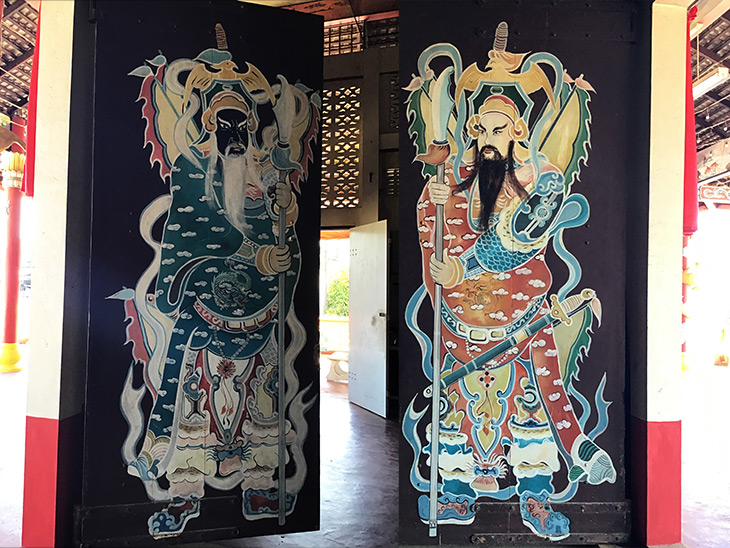
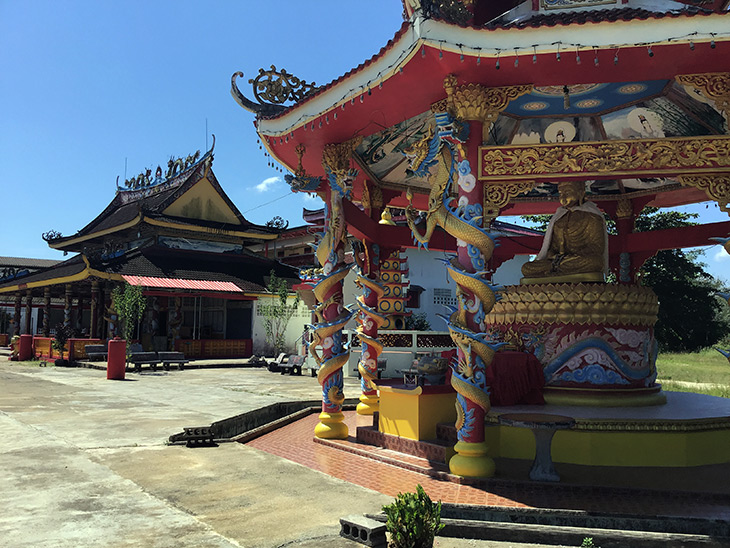
In my trip notes I’d written “photo op only” alongside most of the places I’d planned to visit. That meant there wasn’t anything specific to see, and I probably couldn’t go inside to explore. So it was really a case of get there, get out of car, look, take photos, get back in car, and go to next place.
And the next place was another Chinese temple, the Sin Chai Tueng Shrine, on the northern end of the town…
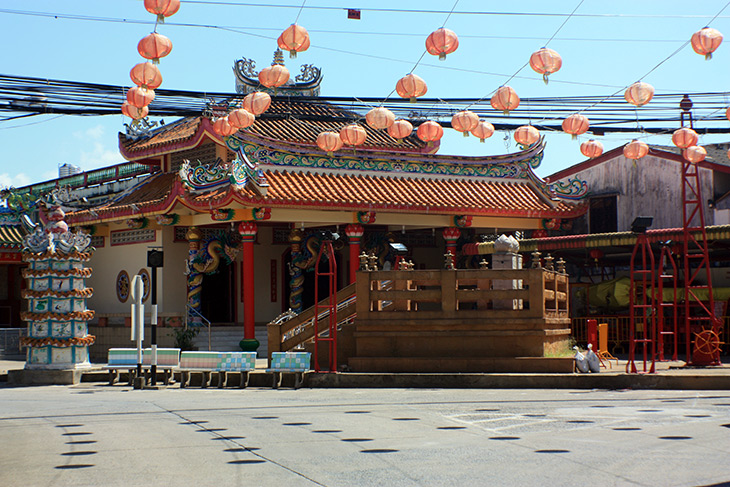
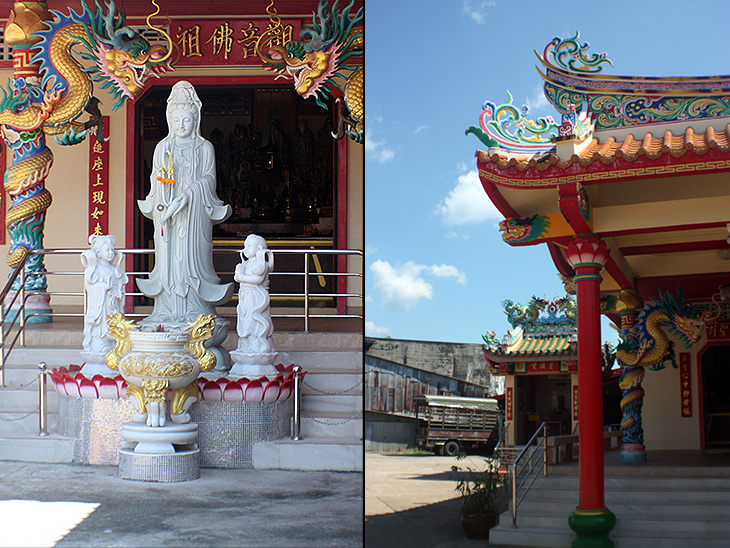
Very close to this is a Thai-style temple, Wat Sena Nuchrangsa…
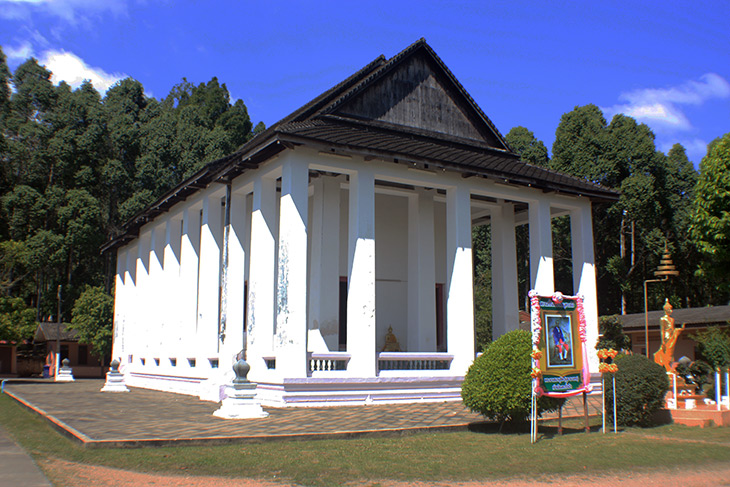
It was built by the Governor of Taku Pa in 1847 and features a large rectangular ubosoth or ordination hall. Makes a nice change from all the reds and golds.
Another handsome structure, a little ways north of the town is the Khun In Building…
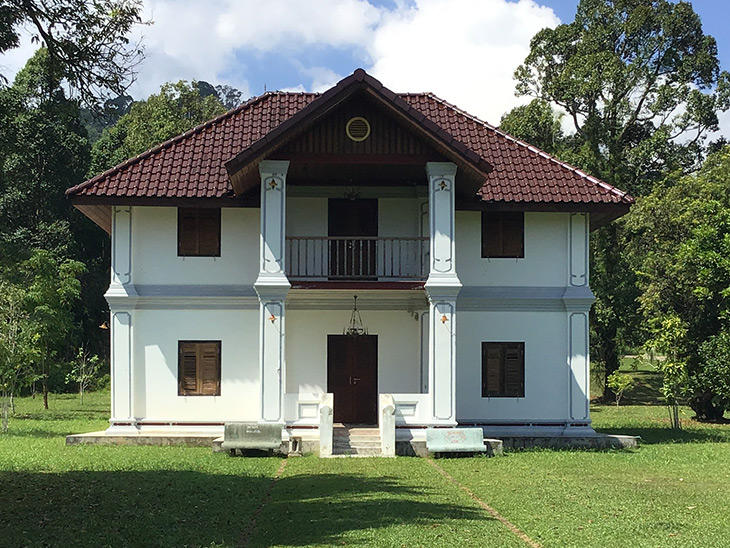
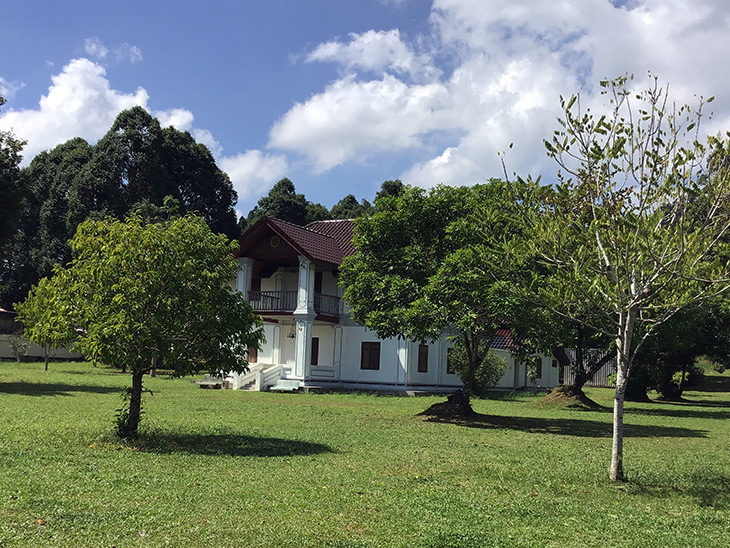
It was constructed in 1917 by Chinese builders in a Sino-Portuguese style. It originally belonged to Lieutenant Khun Intraheeree and remains under the care of his family. Hence, stand at gate, take photos, and move on.
On the edge of town one can find remnants of the old city walls. Hmm, I guess that’s a good place for them. There doesn’t seem to be a lot of information available, but one sign mentioned separating various warring Chinese factions! The wall also surrounded the Governor’s home. Looks nice and peaceful now…
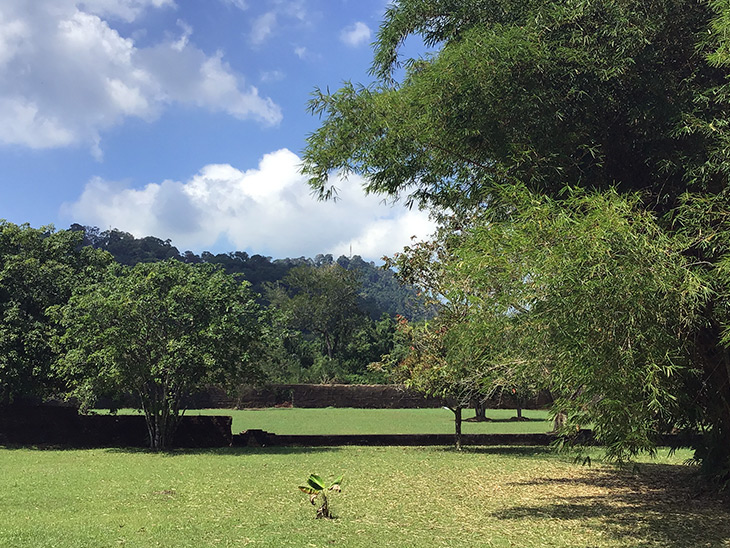
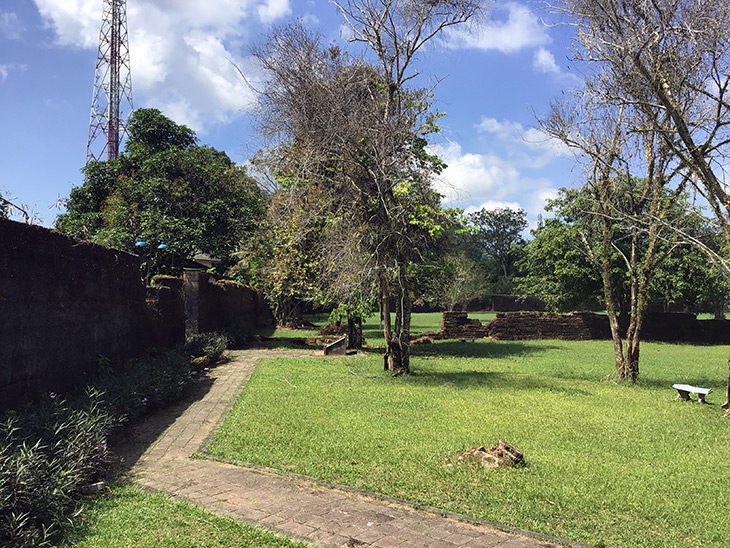
From there, it was just a short drive along the small road by the river…
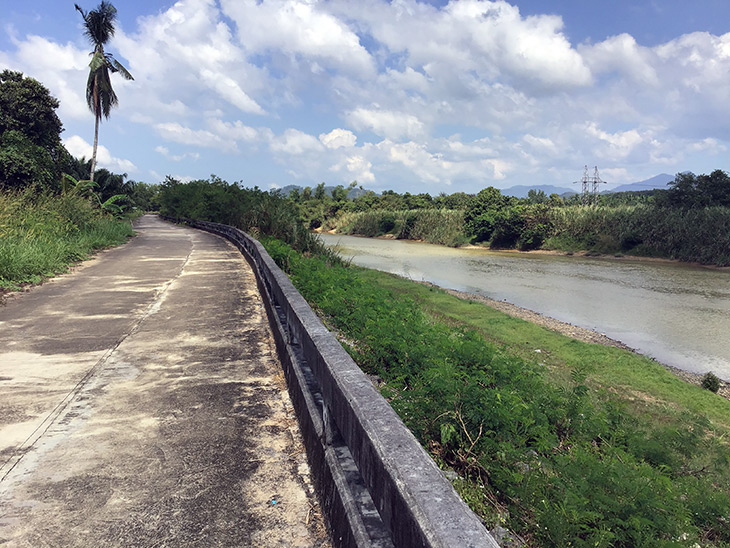
…to reach the quite impressive Wat Khongkha Phimuk…
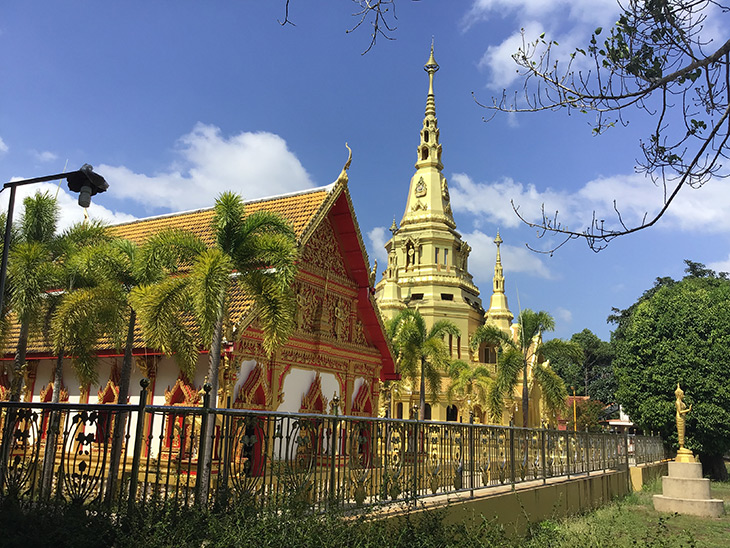
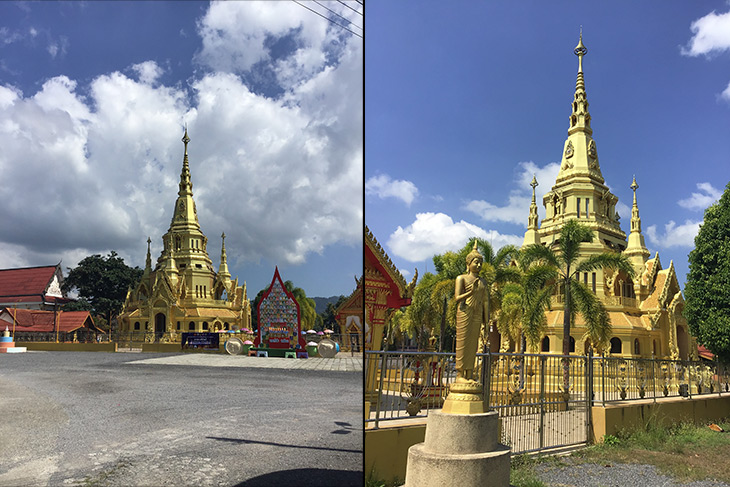
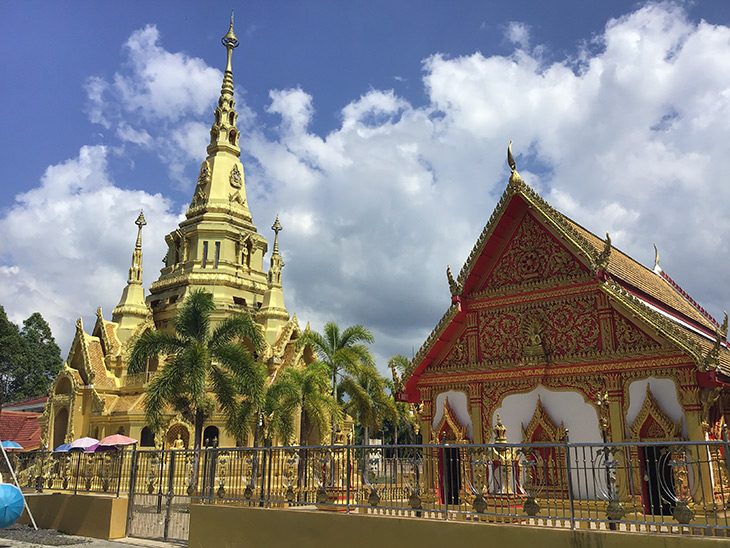
As I wandered around the perimeter I realized there was something odd about the place. It was surrounded by a metal fence with locked gates. I’ve never seen that before. Usually, being places of worship, wats are completely open to all. Then I noticed the small ticket booth! I couldn’t imagine a small place like this would have anything worth seeing, and to me it seemed to be just another way to soak the foreign tourists. So, neither you nor I knows what’s inside.
At this point, I decided a spot of lunch would be in order. I’d made a note of something called “Dad’s Field.” A bamboo-constructed restaurant down a long gravel road, in the middle of nowhere, surrounded by – well – fields…
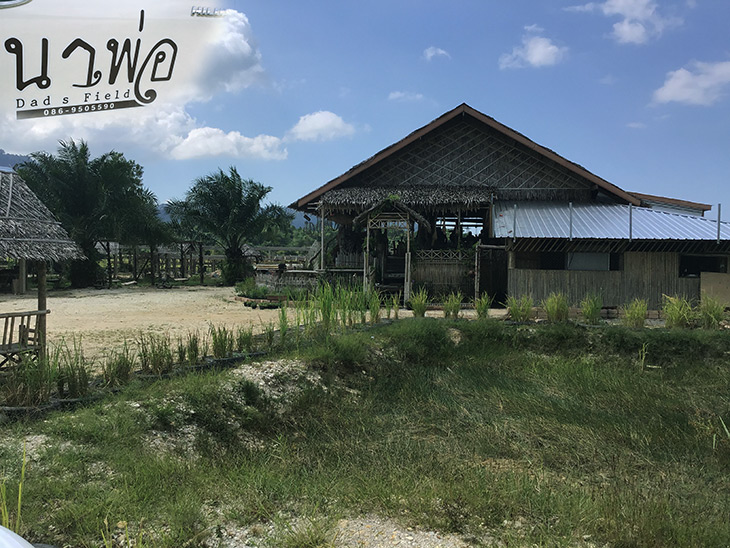
Except it no longer is surrounded my fields. To the right of the above picture, and most definitely not a “photo op” was a sea of white gravel, which I assumed led to a limestone quarry. Which also meant the restaurant was covered in white dust. Not appealing. Added to that, I discovered I’d arrived just after a bus load of tourists, who, no doubt were going to get priority. Take photo. Back in the car.
Driving further alongside the river brought me to the Boon Soong Iron Bridge. Handsome it is not. Interesting, a little. It was made in 1965 from left-over iron from the by-then unused tin dredge. The haphazard welding of various bits and pieces is clearly visible…
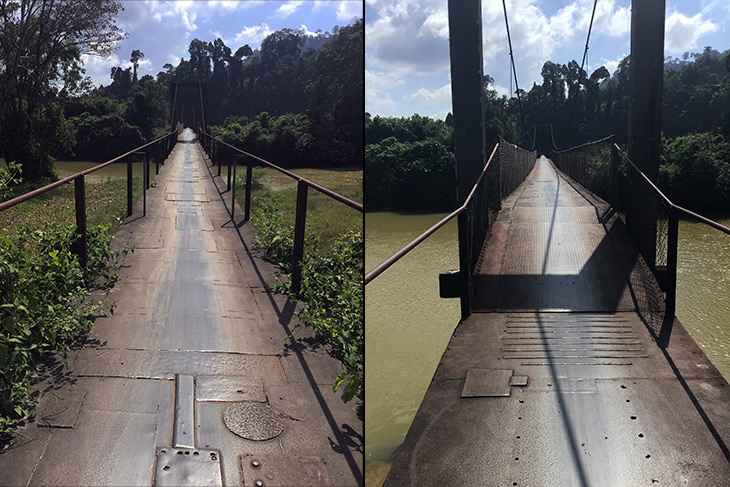
I have to say it was quite unnerving when pieces moved when stepped on, sending a booming sound back down the length of the bridge. I probably spent more time here than anywhere as I made the 200 meter trip to one end and back again.
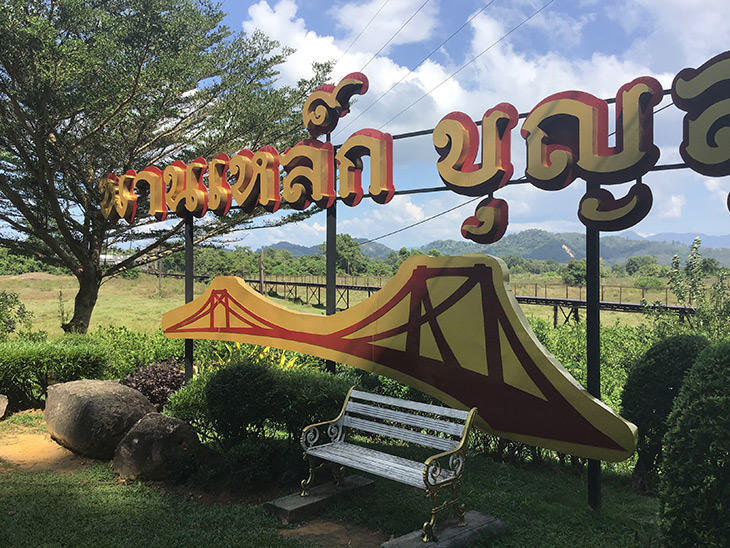
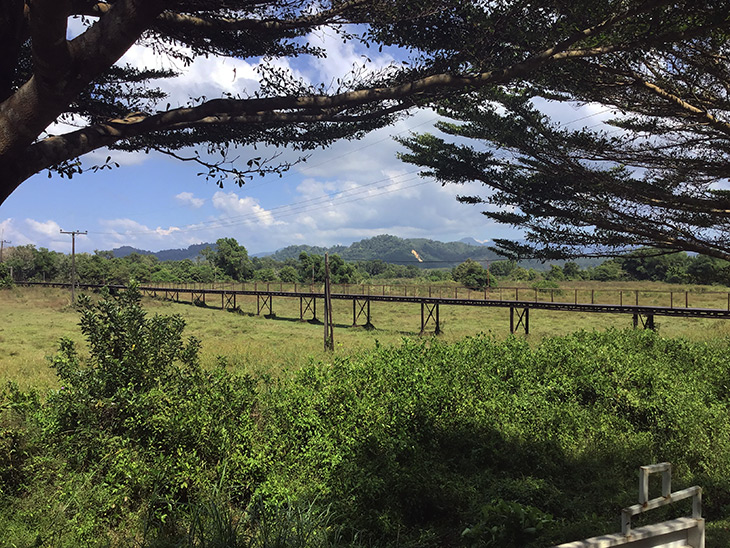
If you’re still reading, you’re probably wondering if there’s any end to this saga. Just one more place to go…
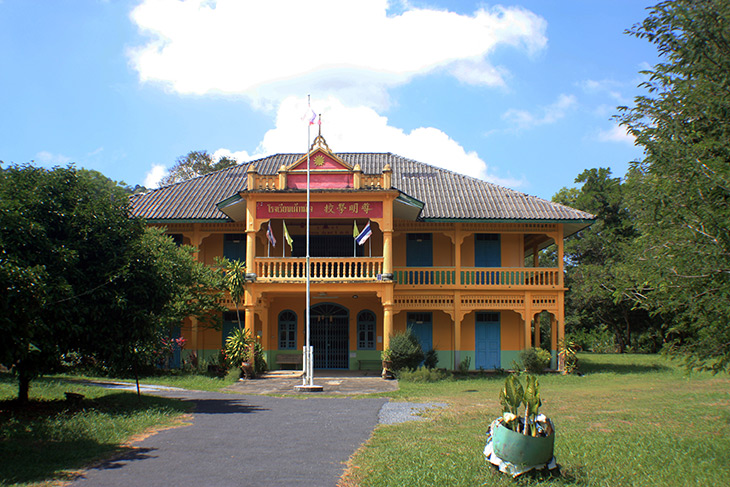
Back towards town is the Tao Ming School. I was able to wander around the grounds, but the building was locked. Apparently it’s no longer a school, which seems a shame, and is only used for “special functions.”
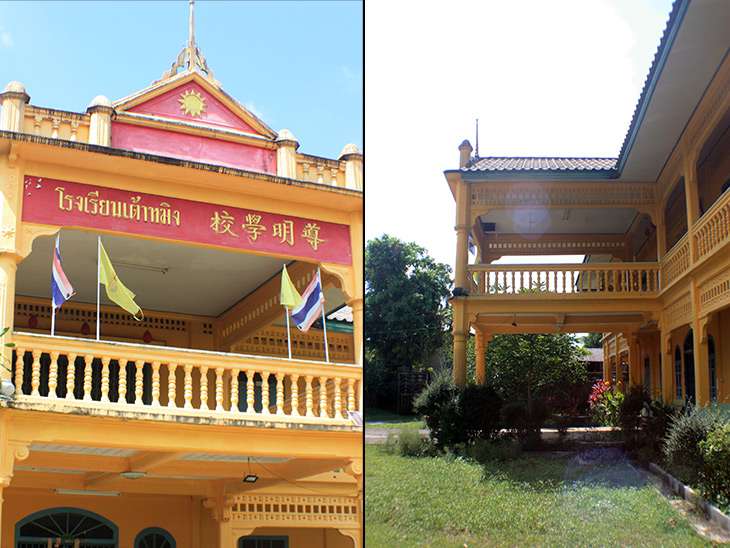
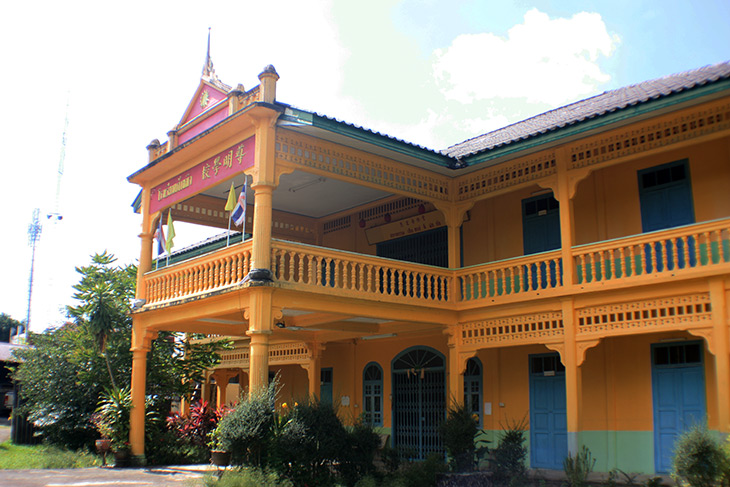
 And there you have it. Takua Pa in a snapshot. Lots to see, but no place to linger. I was there for maybe 90 minutes – town wander included. Very enjoyable though.
And there you have it. Takua Pa in a snapshot. Lots to see, but no place to linger. I was there for maybe 90 minutes – town wander included. Very enjoyable though.
Actually there was one place on my list where I stopped and didn’t get out of the car. A red bean paste bun factory. It was deserted. It looked like they’d made their last bun sometime in 1947. But maybe they only work from 6am to 8am making their pasty-buns. We’ll never know.


